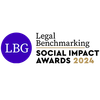As we reported two weeks ago, a landmark judgement in the UK has been handed down in the Emotional Perception AI Ltd case, stating that artificial neural networks (ANN’s) are not computer programs.
This is a marked divergence from previous established practice at both the UK Intellectual Property Office (UKIPO) and the European Patent Office (EPO), which was to examine applications relating to any kind of artificial intelligence (AI) as computer-implemented inventions.
An AI is not a computer program
Following the judgement, the UKIPO has issued a statement that:
“Patent Examiners should not object to inventions involving an ANN under the ‘program for a computer’ exclusion of section 1(2)(c).”
This means that the UKIPO will no longer reject AI-implemented inventions for being computer programs. This is good news for innovators who might otherwise have been confined to applications at the EPO.
At Murgitroyd we have already seen the benefit of this change. One attorney reports progress on an AI-implemented application that the UKIPO previously refused to search; the attorney called the Examiner to ask if he still maintained this position in light of the judgement, and the Examiner immediately agreed that the application must now be searched. We expect to see many other applications making similar progress, and welcome that they will now be assessed under the substantive examination of novelty and inventive step, instead of falling at the first hurdle of a refusal to search.
An AI provides a technical effect
The judge also explored what was the effect if he was wrong on the above matter. To patent a computer-implemented invention, the applicant must make the case that it includes a “technical effect”. The full guidance has not yet been updated, so we are still waiting to find out how the UKIPO will implement another important point in the judgement, which is, as paraphrased in the UKIPO’s statement:
“[M]oving data outside the computer system, in the form of a file that is transferred, provides an external (outside world) technical effect… When coupled with the purpose and method of selecting the file’s contents, this fulfils the requirement for a technical effect which avoids the computer program exclusion… [A] trained hardware ANN is capable of being an external technical effect which prevents the computer program exclusion from applying.”
This means that the AI itself or the data it outputs may be a technical effect sufficient to move an invention out of unpatentable territory.
The question that the UKIPO will be wrestling with is, how should they examine AI-implemented inventions if they are not computer programs? An essential part of the judge’s reasoning was that the ANN could be hardware-implemented, but what if an application does not mention hardware? Does an AI need to be in a technical area in order to provide a technical effect? These are fundamental points and the IP community is eagerly awaiting the full updated guidance.
In the meantime, here at Murgitroyd our experienced attorneys are ensuring that new applications we draft, as well as existing ones that we are prosecuting, have the best possible chance of being considered technical under the new guidance. Additionally, we may recommend that clients who would not normally file in the UK reconsider their filing programs for AI-related applications, particularly those that are still in their convention term or PCT applications approaching national phase deadlines.
Divergence from practice at the EPO
A European patent application filed at the EPO is a cost-effective way to obtain protection in thirty-nine European countries, including the UK and all members of the EU. Add in that it can be easier to obtain protection for computer-implemented inventions at the EPO than at the UKIPO, and it has been a no-brainer for tech companies to focus on the EPO rather than filing directly in the UK. However, the EPO’s established practice is to require that an invention must provide a non-obvious technical solution to a technical problem, and a computer program – and therefore an AI – is generally considered non-technical.
Applicants should consider filing in the UK
Therefore, it may now be the case that protection for some AI-implemented inventions will be available in the UK but not at the EPO. We therefore advise applicants to consider filing an application in the UK alongside their European application. A UK application is not an expensive option due to the comparatively low official fees, and is therefore relatively low-risk for a potentially large gain.
Talk to your attorney at Murgitroyd to make sure you are getting the best possible protection for your innovations.





















